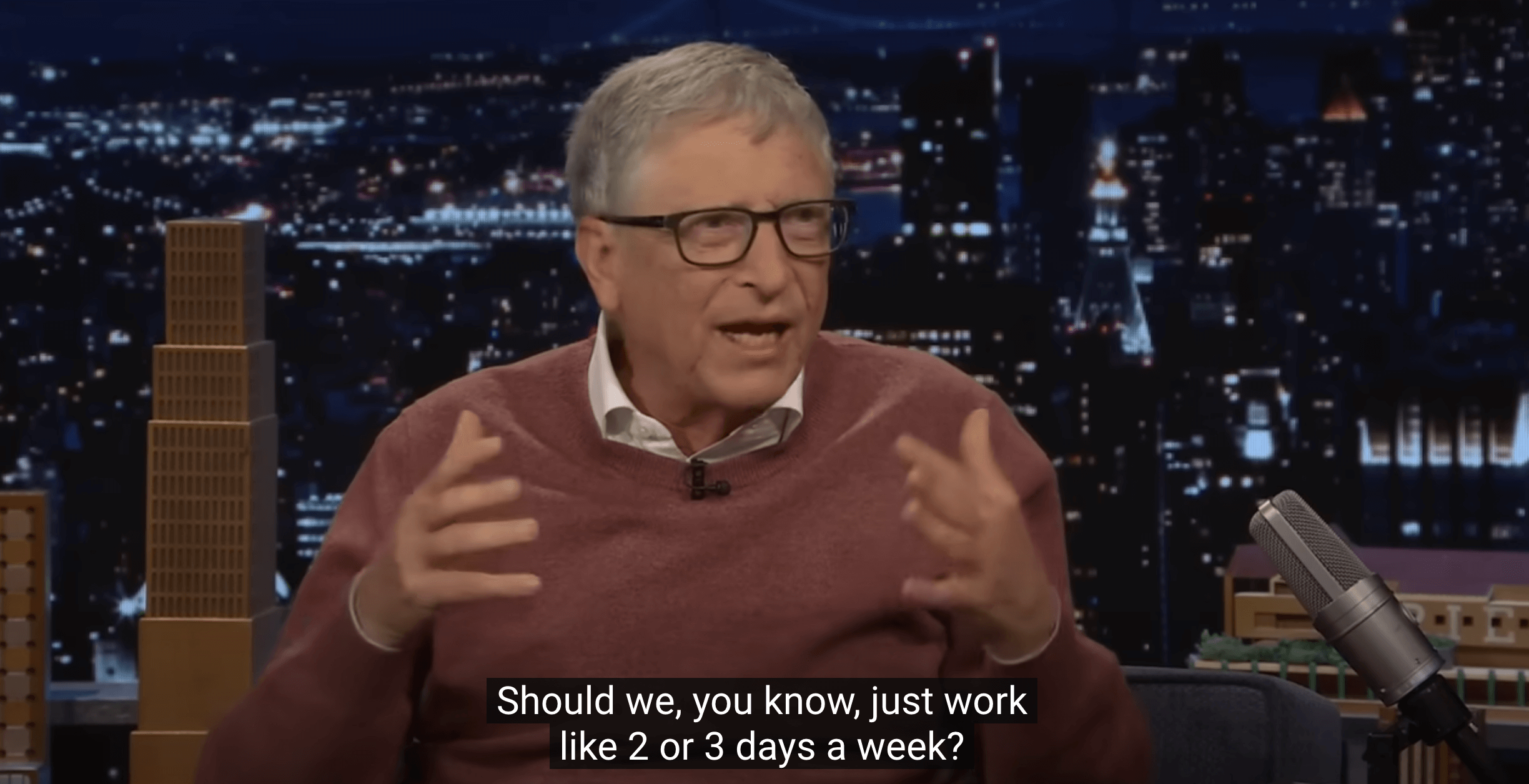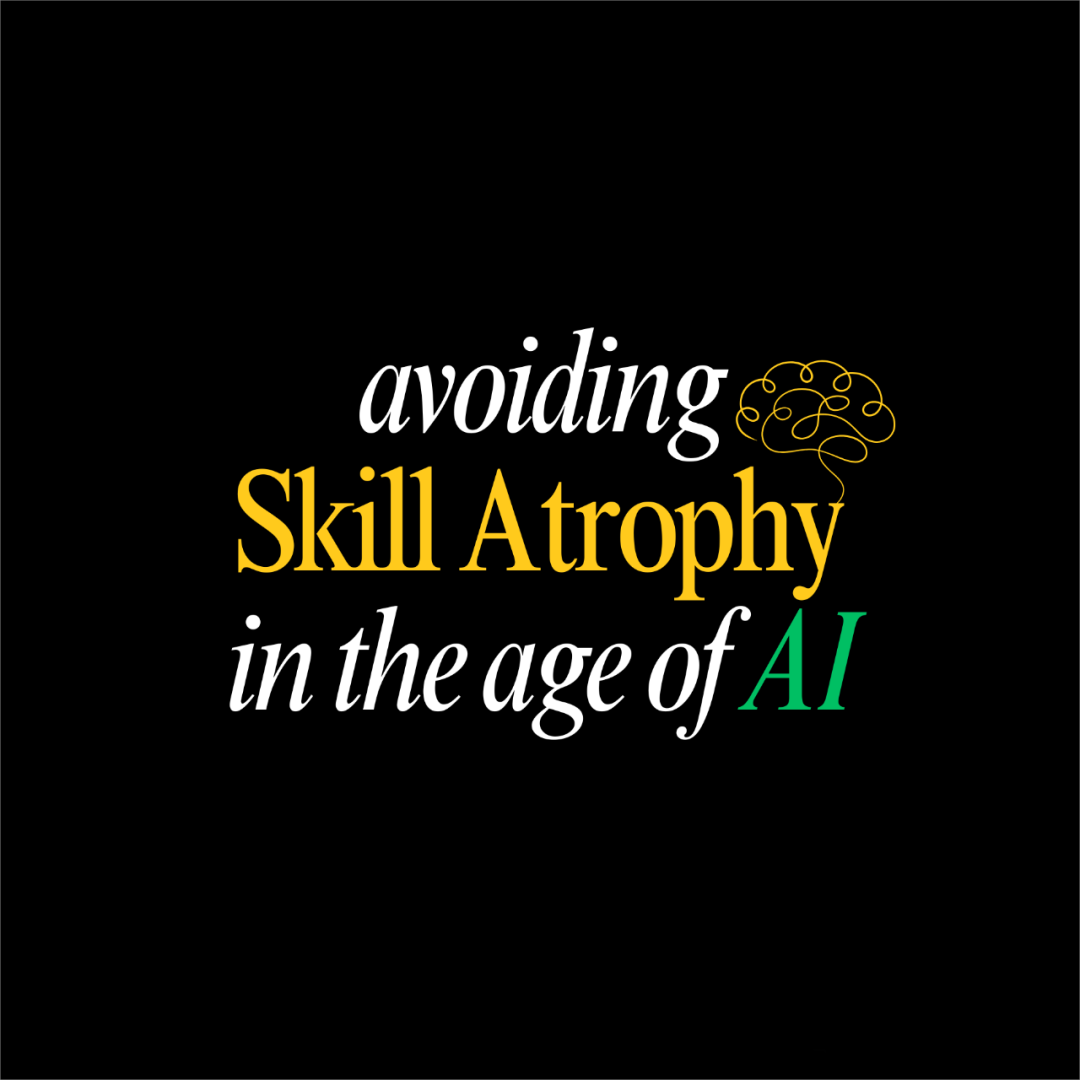Bill Gates’ Latest Prediction: Humans Will Only Work Two Days a Week in the AI Era. What Do You Think?
Don’t get it wrong. When Bill Gates said “working only two days a week”, it was an interrogative sentence, not a declarative one. Therefore, this statement is not a prophecy but a question.
On this episode of the Tonight Show on YouTube, the host Jimmy Fallon brought up AI, and Bill Gates started talking non-stop. Here is his exact quote about working hours:
but it brings with it kind of so much change.
You know, what will jobs be like?
Should we, you know, just work like 2 or 3 days a week?
So I love the way it’ll drive innovation forward,
but I think it’s a little bit unknown.

Bill Gates also clearly said in the following two sentences, “Everything is still unknown.” Therefore, even Bill Gates doesn’t know what the future will look like. So —
Bill Gates said: Humans will only work 2 days a week in the AI era! ❌
Bill Gates asked: Is it possible that humans may only need to work 2 to 3 days a week in the AI era? ✅
But then again, will humans in the future really only need to work 2-3 days a week because of AI?
Personal view:
First of all, we need to know that the arrangement of workdays depends more on the attitude of the state machinery, because the workday is arranged by the state, not by the company.
In other words, if it weren’t for the controllers of the state apparatus and companies were left to decide on workdays entirely, there would be 365 workdays in a year.
If AI really develops productivity to the point where only a small number of humans are needed, companies will only hire as few people as possible to fill all working days, rather than shortening the workday to share the workload among workers.
For example, under a five-day workweek, a company needs 100 employees. AI increases productivity by 500%, meaning that under the same five-day workweek, the company only needs 20 employees. As a result, the company will lay off 80 employees and keep the remaining 20 on a five-day workweek, rather than retaining all 100 employees and having each person work just one day a week.
What will the 80 people who have been laid off do?
The company will say that this is not something I should worry about, but the state apparatus needs to worry about it.
With the improvement of productivity by AI, it is not impossible to support these 80 people at the level of social welfare. However, if these 80 people remain idle and become a factor of social instability, and if the 20 people working in the company feel dissatisfied because they are supporting 80 people who do not work through social welfare, this could also become a source of instability. Therefore, at this point, the state machinery will inevitably need to address this issue. A natural solution would be to establish a system that requires everyone to contribute and work.
But if the five-day workweek system in the company really only requires 20 people, then we can only change the working hours, making it so that one only needs to work one day a week. In that case, five times as many people would be needed, and 100 people would all have jobs.
Of course, the above is just theoretical speculation. The actual situation will be much more complicated. Moreover, many companies nowadays cannot even implement a five-day workweek, and overtime has become the norm. I think it’s far too early to say that people will only work two or three days a week.
Related Posts




